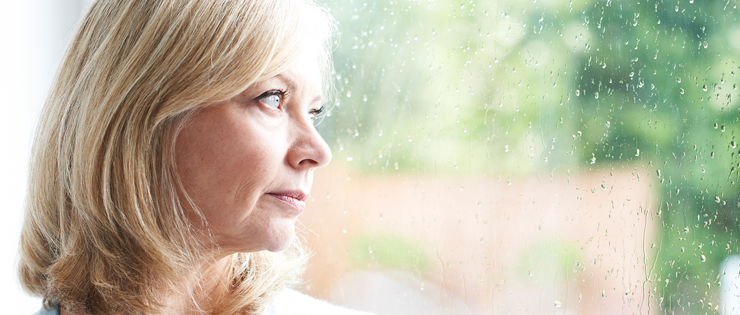
As we say goodbye to the heat of summer, and begin to ease in to the colder and darker months of winter, some of you might be wondering why your mood is lower or why, in the past, you’ve felt sad and/or lethargic during this time of year.
The answer might be that you’ve had (or been) SAD.
Seasonal Affective Disorder (otherwise known by its strangely descriptive acronym, SAD) is, in very simple terms, a form of depression. More specifically, it’s a form of depression that’s related to seasonal changes. Not surprisingly, the incidence of SAD becomes more common through the winter months.
Consistent with other forms of depression, SAD is more prevalent in women; and as one might expect, it’s markedly more common in people who live far from the equator, either north or south (e.g. Alaska and the Scandinavian countries).
Symptoms of SAD are very similar to those of Major Depressive Disorder and include the following:
Feeling sad or depressed, some or most of the time
Feelings of hopelessness and helplessness
Lack of energy; and/or a sluggish, heavy feeling
Loss of interest in activities previously found enjoyable
Insomnia
Appetite and/or weight changes
Difficulty concentrating and making decisions
Irritability
The reality is, that in Australia where our seasons are not really that extreme, there’s limited evidence for SAD; or if it does exist here then it’s prevalence would be very low. Nonetheless, there’s no doubt some people experience lower moods through the winter months and so if you do experience any or all of the just described signs and symptoms then the following strategies would be well worth considering:
Keep active: too often we tend to “hibernate” a bit as soon as the days get shorter and the weather cooler. But exercise and activity work as powerful anti-depressants and stress-busters so as much as you can, make sure you keep moving
And where and when possible, take your activity and exercise outside. Going to the gym for exercise obviously has many advantages, but by getting outside you’re also providing your body with valuable Vitamin D which has been shown to be important for all round physical, and mental health
In more serious cases, talk to your doctor about “light therapy”. In this treatment, also called phototherapy, you sit a few feet from a special light therapy box so that you're exposed to bright light. Light therapy mimics natural outdoor light and appears to cause a change in brain chemicals linked to mood
Just as with other forms of depression, especially the more severe forms, medications are worth considering and as noted above, you can talk to your local doctor or mental health specialist about this
And finally, in addition to or in combination with any and all of the aforementioned options, psychological therapy should almost definitely be a part of an overall approach. In psychological therapy, especially Cognitive Behaviour Therapy, therapists will help those experiencing low moods to identify the triggers of sadness or hopelessness, along with contributing and unhelpful thoughts and beliefs, and importantly, develop practical and constructive strategies with which one can help oneself feel and live better
As you can hopefully see, if you do suffer SAD (even in a mild form) there are many treatment options and a number of relatively simple things you can do to improve your own mood. So do what you can to help yourself; but at the same time, don’t ever be afraid to reach out and ask for help.